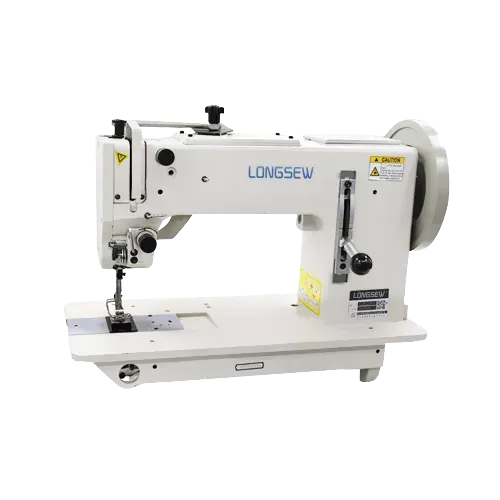what to look for in an overlocker
What to Look for in an Overlocker A Comprehensive Guide
When it comes to enhancing your sewing experience, an overlocker, often known as a serger, is an invaluable tool in your arsenal. It's designed to trim and finish the edges of your fabric, giving your garments a professional and polished look. However, with numerous options on the market, choosing the right overlocker can be a daunting task. This guide will help you navigate the important features and factors to consider when selecting the perfect overlocker for your sewing needs.
1. Type of Overlocker
First, understand that there are different types of overlockers, each suited for various sewing projects. The most common types include
- Basic 3- or 4-thread overlockers Ideal for beginners or those who focus mainly on simple sewing tasks. They provide a sufficient finish for woven and knit fabrics alike. - Multi-thread overlockers These are more advanced and allow for more intricate stitching options. Depending on the number of threads, they offer a wider range of functions, including chain stitching and cover stitching.
Decide what type you need based on your sewing projects and experience level.
2. Threading System
Threading an overlocker can sometimes be complicated, especially for beginners. Look for models with an easy or color-coded threading system. Some advanced machines come with automatic threaders, making the process faster and less frustrating. An easy threading mechanism can save you time and reduce the likelihood of errors.
3. Adjustable Stitch Settings
Different fabrics require different settings for optimal finishing. An overlocker with adjustable stitch length and width allows you to customize your settings based on the material you are working with. This feature is particularly important if you plan to work with a variety of fabrics, such as knits, wovens, or delicate materials.
what to look for in an overlocker

The differential feed mechanism ensures that the top and bottom layers of fabric move at different rates, preventing stretching or puckering, especially in knit fabrics. This feature is crucial for achieving a smooth and even finish, making it an essential factor to consider in your selection.
5. Speed Control
Overlockers can be quite fast, with some models sewing up to 1,500 stitches per minute. While speed is beneficial for efficiency, beginner sewers may prefer models with adjustable speed controls that allow for slower operation until they become more comfortable handling the machine.
6. Accessories and Attachments
Check what accessories come with the overlocker. Some models may include additional feet for gathering, piping, or rolled hems, while others may not come with any attachments at all. A model that includes a range of presser feet expands your sewing possibilities without additional investment.
7. Ease of Maintenance
Finally, consider how easy it is to clean and maintain the machine. Look for features like removable stitch plates and accessible cutting areas, which can simplify the cleaning process. Some overlockers come with built-in lint catchers, making upkeep even more manageable.
8. Brand and Warranty
Opt for brands that are well-established in the sewing community, as they typically offer reliable performance and good customer service. Additionally, a robust warranty can provide peace of mind, protecting your investment.
Conclusion
Choosing the right overlocker is crucial for elevating your sewing projects and achieving that professional finish. By considering the type of overlocker, threading system, stitch settings, differential feed, speed control, available accessories, maintenance ease, and brand reputation, you can make an informed decision. Whether you're a novice or a seasoned seamstress, the right overlocker will enhance your sewing experience and inspire creativity in all your projects. Happy sewing!
-
Industrial Cylinder Arm Sewing Machine: Revolutionizing Heavy-Duty SewingNewsJul.28,2025
-
Cylinder Arm Sewing Machine: Perfect for Special Sewing ApplicationsNewsJul.28,2025
-
Cylinder Bed Sewing Machine: Essential for Sewing Complex MaterialsNewsJul.28,2025
-
Heavy Duty Sewing Machine: The Essential Tool for Industrial ApplicationsNewsJul.28,2025
-
Computerized Pattern Sewing Machine: Revolutionizing Precision StitchingNewsJul.28,2025
-
Heavy Duty Industrial Sewing Machine: Power Meets PrecisionNewsJul.28,2025
-
Leather Sewing Machine: The Industrial Standard for Tough MaterialsNewsJul.18,2025





























